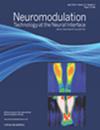Impact of Preoperative Cognition on Motor Improvement in Bilateral Subthalamic Nucleus-Deep Brain Stimulation for Parkinson's Disease
IF 3.2
3区 医学
Q2 CLINICAL NEUROLOGY
引用次数: 0
Abstract
Objective
This study aimed to assess the influence of preoperative cognition on postoperative motor and nonmotor outcomes in patients with Parkinson disease (PD) after deep brain stimulation (DBS).
Materials and Methods
A retrospective study was performed in subjects with PD with bilateral subthalamic DBS. Preoperative cognition was indexed by Parkinson’s Disease-Cognitive Rating Scale (PD-CRS) and global neuropsychological evaluation (NPE) scores. The primary outcome was change from baseline to postoperative off-drug Movement Disorders Society Unified Parkinson Disease Rating Scale (MDS-UPDRS) part 3 score. Secondary outcomes included change from baseline to postoperative MDS-UPDRS part 1 subscores.
Results
The study included 226 subjects; 176 patients (77.9%) had normal cognition (PD-NC); 48 (21.2%) had mild cognitive impairment (MCI), and two (0.9%) had PD dementia. Proportional change (−41.4% vs −52.2%, p = 0.013) in off-drug MDS-UPDRS part 3 score was smaller in PD-MCI than in PD-NC. PD-CRS (Pearson’s r = 0.236, p < 0.001) and NPE (Pearson’s r = 0.219, p < 0.001) scores displayed a positive correlation with proportional change in off-drug MDS-UPDRS part 3 score. Worse PD-CRS scores were related to larger improvements in MDS-UPDRS part 1.2 (hallucinations) (Pearson’s r = 0.135, p = 0.045).
Conclusions
DBS induces a clinically meaningful motor improvement in patients with cognitive impairment and PD, but the improvement may be smaller than in patients who are not cognitively affected. Further research into the risk-benefit balance of DBS in people with PD and cognitive dysfunction is warranted.
术前认知对双侧眼下核-深部脑刺激治疗帕金森病的运动改善的影响
研究目的本研究旨在评估帕金森病(PD)患者在接受深部脑刺激(DBS)术后,术前认知对术后运动和非运动预后的影响:对接受双侧丘脑下DBS治疗的帕金森病患者进行了一项回顾性研究。术前认知以帕金森病认知评分量表(PD-CRS)和全球神经心理评估(NPE)评分为指标。主要结果是从基线到术后停药后运动障碍协会统一帕金森病评定量表(MDS-UPDRS)第3部分评分的变化。次要结果包括从基线到术后 MDS-UPDRS 第 1 部分子评分的变化:研究共纳入 226 名受试者,其中 176 名患者(77.9%)认知正常(PD-NC),48 名患者(21.2%)有轻度认知障碍(MCI),2 名患者(0.9%)有 PD 痴呆。PD-MCI患者停药后MDS-UPDRS第3部分评分的比例变化(-41.4% vs -52.2%,p = 0.013)小于PD-NC患者。PD-CRS(Pearson's r = 0.236,p < 0.001)和NPE(Pearson's r = 0.219,p < 0.001)评分与停药后MDS-UPDRS第3部分评分的比例变化呈正相关。较差的 PD-CRS 评分与 MDS-UPDRS 第 1.2 部分(幻觉)的较大改善相关(皮尔森 r = 0.135,p = 0.045):结论:DBS可使认知障碍和帕金森病患者的运动能力得到有临床意义的改善,但改善幅度可能小于未受认知障碍影响的患者。有必要对认知功能障碍和帕金森病患者使用 DBS 的风险-收益平衡进行进一步研究。
本文章由计算机程序翻译,如有差异,请以英文原文为准。
求助全文
约1分钟内获得全文
求助全文
来源期刊

Neuromodulation
医学-临床神经学
CiteScore
6.40
自引率
3.60%
发文量
978
审稿时长
54 days
期刊介绍:
Neuromodulation: Technology at the Neural Interface is the preeminent journal in the area of neuromodulation, providing our readership with the state of the art clinical, translational, and basic science research in the field. For clinicians, engineers, scientists and members of the biotechnology industry alike, Neuromodulation provides timely and rigorously peer-reviewed articles on the technology, science, and clinical application of devices that interface with the nervous system to treat disease and improve function.
 求助内容:
求助内容: 应助结果提醒方式:
应助结果提醒方式:


